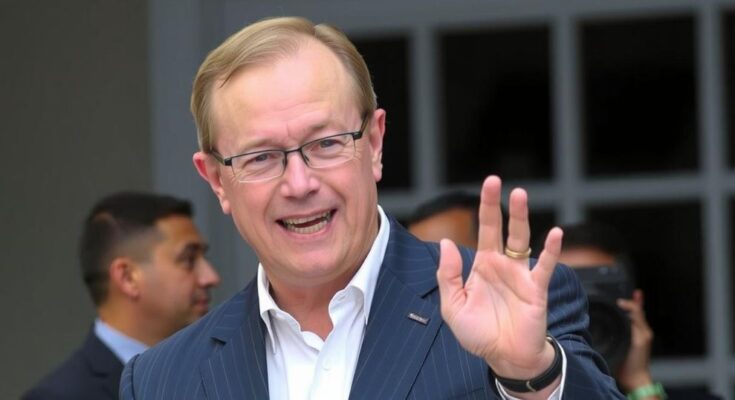Croatian President Zoran Milanovic narrowly won 49.1% in the first round, prompting a runoff against conservative Dragan Primorac, who received 19.35%. The election reflects deep political divides in Croatia as it deals with inflation, corruption, and labor shortages. Milanovic seeks to assert his stance on national interests, while both candidates aim to address their significant differences in the upcoming runoff.
Croatian President Zoran Milanovic will face off against conservative candidate Dragan Primorac in a runoff election scheduled for two weeks after neither achieved a majority in the first round. Official results indicate Milanovic received 49.1 percent of the vote, while Primorac garnered 19.35 percent. Despite Milanovic’s strong showing, he failed to secure over 50 percent, necessitating the second round. In the first round, with eight candidates participating, Milanovic’s position raises concerns for Prime Minister Andrej Plenkovic’s HDZ party. Milanovic pledged to advocate for Croatian interests while Primorac emphasized addressing the challenges resulting from the electoral divide. The election highlights ongoing issues in Croatia such as inflation, corruption, and labor shortages, amidst a backdrop of a long-standing rivalry between the two politicians that could impact the country’s political landscape significantly.
Croatia, a member of the European Union and NATO with a population of approximately 3.8 million, is experiencing economic challenges including inflation and labor shortages. The presidential election illustrates the contentious political atmosphere shaped by a rivalry between current President Zoran Milanovic and Prime Minister Andrej Plenkovic. Milanovic, who previously served as prime minister, won the presidency in 2020, leveraging progressive policies but adopting a confrontational approach toward his opponents and EU officials. The outcome of the upcoming runoff is crucial for the future balance of power in a nation predominantly governed by the HDZ party since its independence in 1991.
The presidential elections in Croatia are poised at a critical juncture, evidencing a clear divide between the contenders, Zoran Milanovic and Dragan Primorac. As the runoff approaches, underlying issues of public interest, governance, and representation are paramount, and the results will help shape the political trajectory of the nation in a context plagued by economic and social challenges. Observers remain vigilant for the possible ramifications of the rivalry between Milanovic and Plenkovic on national governance and democracy.
Original Source: www.taipeitimes.com




